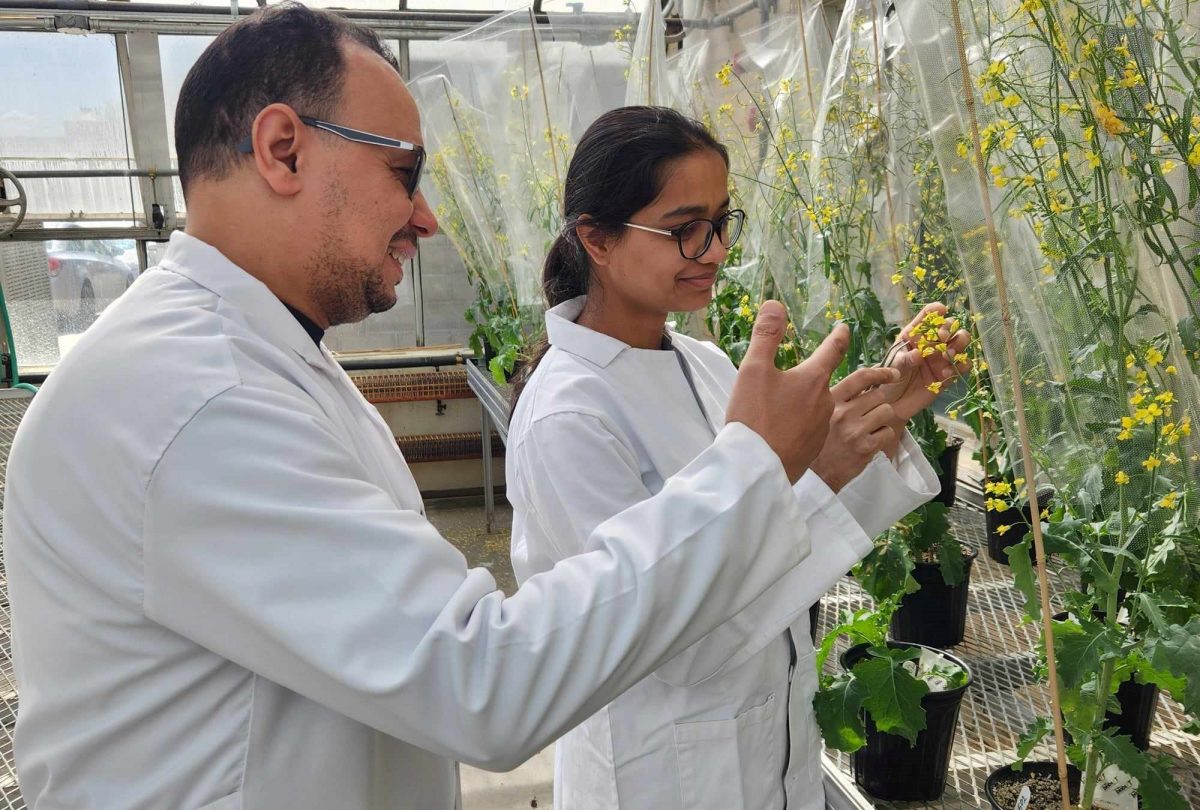
Research associate, Mohamed Youssef (right) and graduate student, Rajbir Kaur (left) examine canola plants at the Chawla Lab.
New study explains how bread transformed the ancient world with help from UM researcher
Harmeet Chawla in co-author of historic findings published in Nature
A major study co-authored by UM Plant Science researcher Dr. Harmeet Chawla in the Faculty of Agricultural and Food Sciences is revealing the evolution and origin of bread. Members of the international Open Wild Wheat Consortium (OWWC) collaborated to analyze 80,000 varieties of early bread wheat to map the genome of their original wild grass ancestor.

Dr. Harmeet Chawla, Faculty of Agricultural and Food Sciences
“These findings provide us with a better understanding of how modern-day bread wheat emerged and adapted to growing conditions around the world, and also contribute to advancing research aimed at improving current wheat crops,” says Chawla.
Emerging in the Fertile Crescent region of the Middle East between eight and eleven thousand years ago, bread wheat resulted from the interbreeding of durum wheat and the wild grass Aegilops tauschii.
The study reveals that this initial hybridization event to place around on the banks of the southern Caspian Sea. This created a genetic bottleneck making the new bread wheat lineage distinct from its wild grass relatives.
The robust adaptability of the new grain allowed cultivation to spread rapidly across a wide range of climates and soils, feeding the rise of sedentary civilization in the region. Further hybridization by farmers across this increasing agricultural region then led to improvements in gluten producing the elastic and fluffy bread dough we know today.
Harmeet Chawla is an assistant professor of plant genomics whose research focuses on genetics of nutrition and disease resistance in agriculturally important plants like canola, oats and wheat.
“In my research program I seek to leverage genomics and genetic engineering to design climate change resilient crops for Canada and the open-source data made available by the OWWC is helping us to identify genes that will protect wheat crops,” says Chawla. We also hope to mine this wild grass species for climate resilient genes that can be bred into elite wheat cultivars.”
Read the full publication in Nature.
Research at the University of Manitoba is partially supported by funding from the Government of Canada Research Support Fund.






